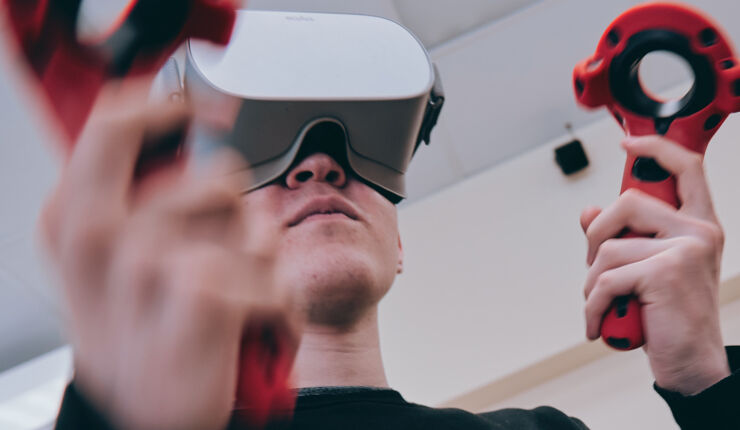About the course
The course Introduction to the factories of the future aims to provide a very brief introduction to the exciting developments and new ways of thinking with respect to the creation of intelligent factories.
In the course, we will discuss the factories of the future as a collection of interacting intelligent components (machines, logistic components, products, systems, and sub-systems). These components need to understand themselves, by having a perception of their capabilities, operational environment, and action scope. They also need to understand each other, so that collectively their interactions result in a set of sustainable production processes and environments.
The course is suitable for anyone who wants to look a little over the horizon of their usual professional area and get an idea of how tomorrow's industries will look and obtain an insight in Industry 4.0.
Topic covered by the course
When you have passed this MOOC you will have gained knowledge to understand the main conceptual and technological landscape of the fourth industrial revolution, also known as Industry 4.0. You will be able to:
- Understand the concept of the fourth industrial revolution, in particular the opportunities it provides for redesigning factories, and the challenges these opportunities entail.
- Understand the many design metaphors for such systems, in particular the applicability, differences and contact points between the concepts of cyber-physical system and digital twin.
- Understand the main steps, required to go from the concept of cyber-physical systems to the creation of industrial systems with cyber-physical properties, in particular understand that cyber-physical design requires a clear definition of both conceptual and engineering requirements that traverse many technical levels.
- Create a knowledge foundation that can be used to further continued study this exciting area.
Who can take the course?
The course is open to everyone and free of charge, but its target audience is, for example:
- Mechanical, production and automation engineers.
- Engineers and practitioners with an industrial background.
- Computer scientists with an interest in understanding Industry 4.0 from an applied computer science perspective.
- More importantly everyone with a genuine interest in this fascinating emerging area.
There are no requirements for prior knowledge or special qualifications to participate in the course.
Course structure
The course is an online course where teaching is completely by remote methods, using a web-based platform. It consists of several pre-recorded video lectures and additional activities that cover the following five topics:
- Industry 4.0
- Barriers and Challenges
- Prevalent Design Metaphors
- Cyber-physical Models of Factories and Products
- Design Challenges
The course is designed such that after each thematic video lecture, there are one or more consolidation exercises. In between lectures and exercises, there will also be links to other resources for further learning. Overall 10 to 15 hours of commitment should provide a good learning experience.
